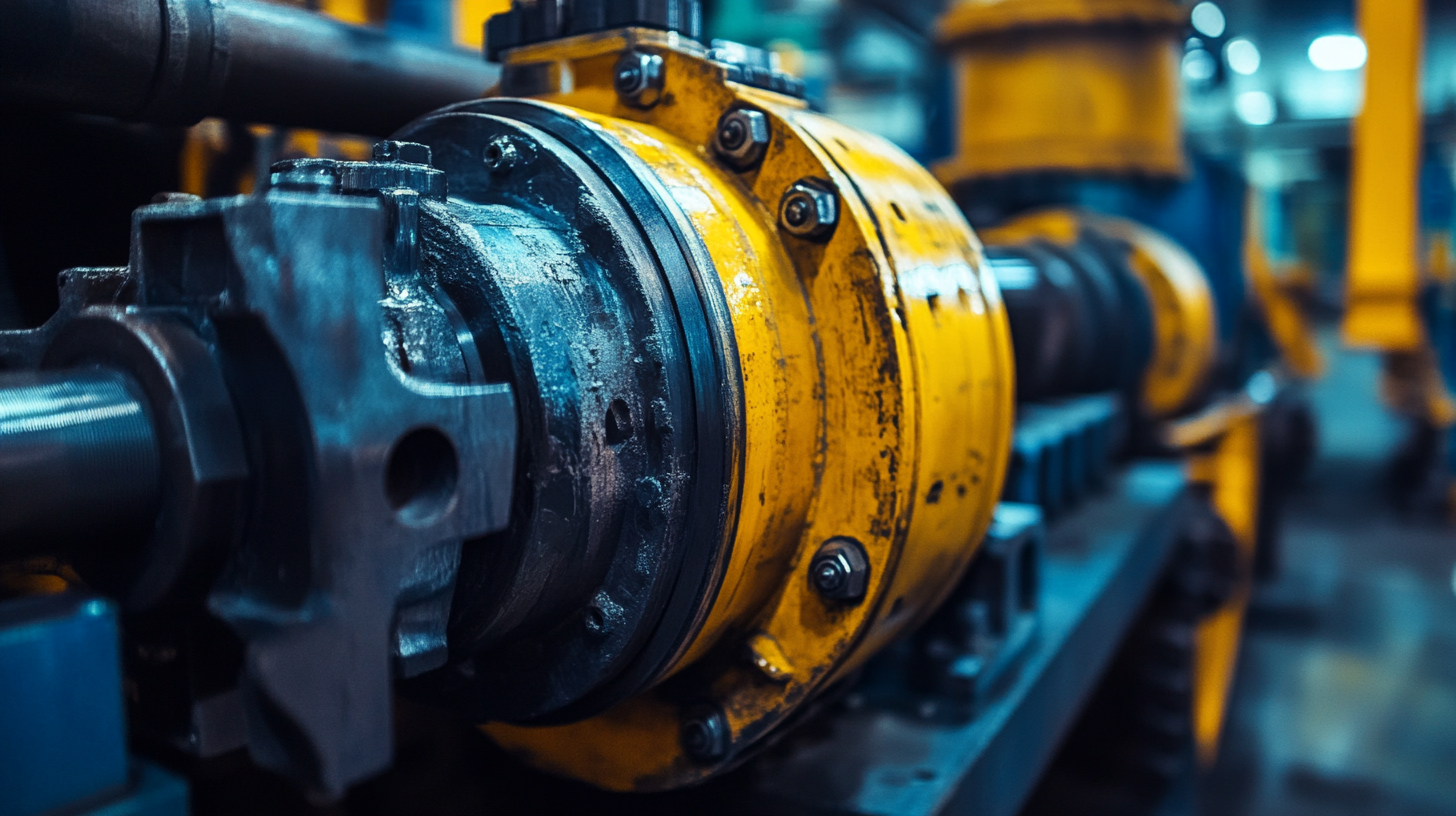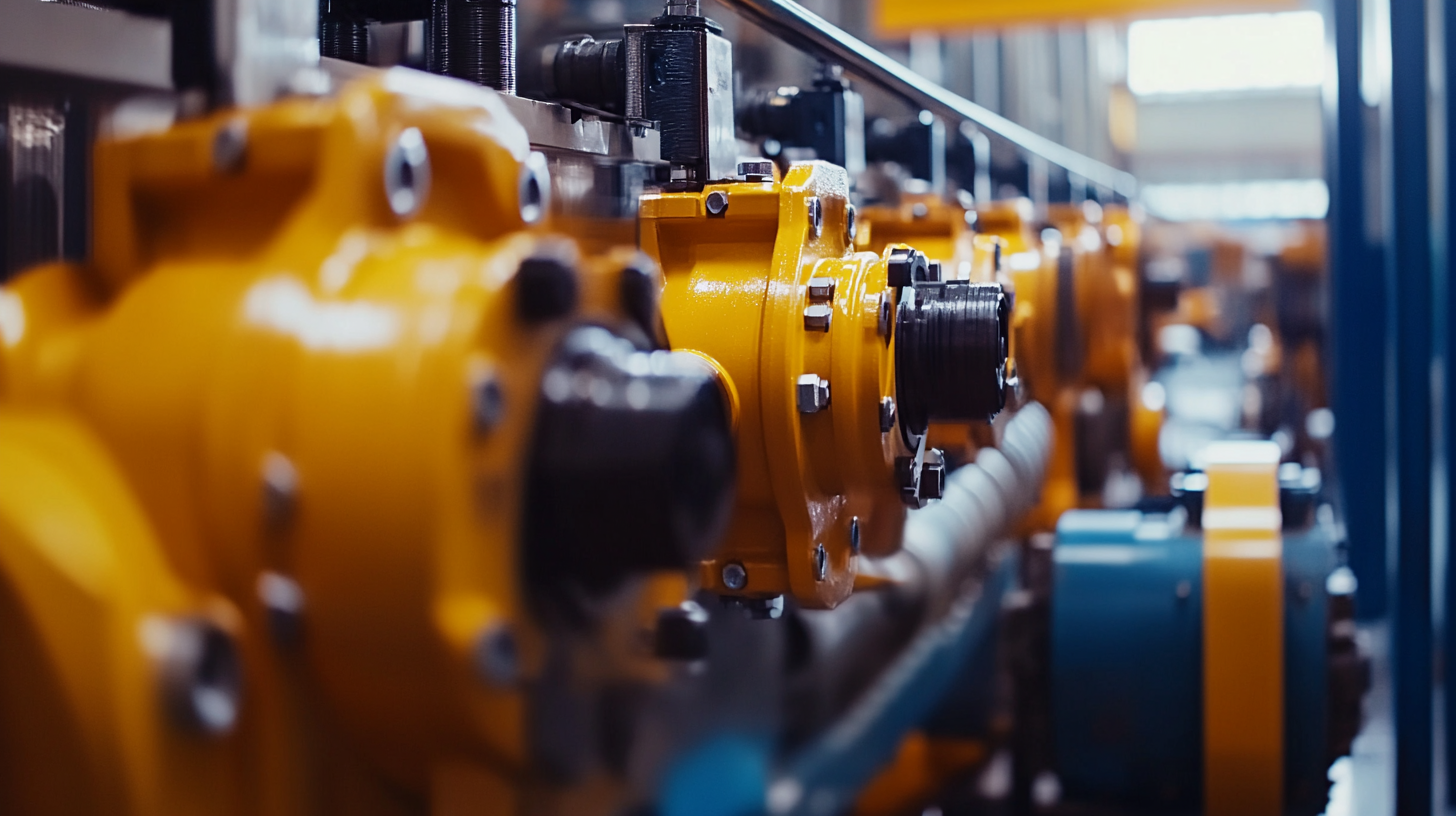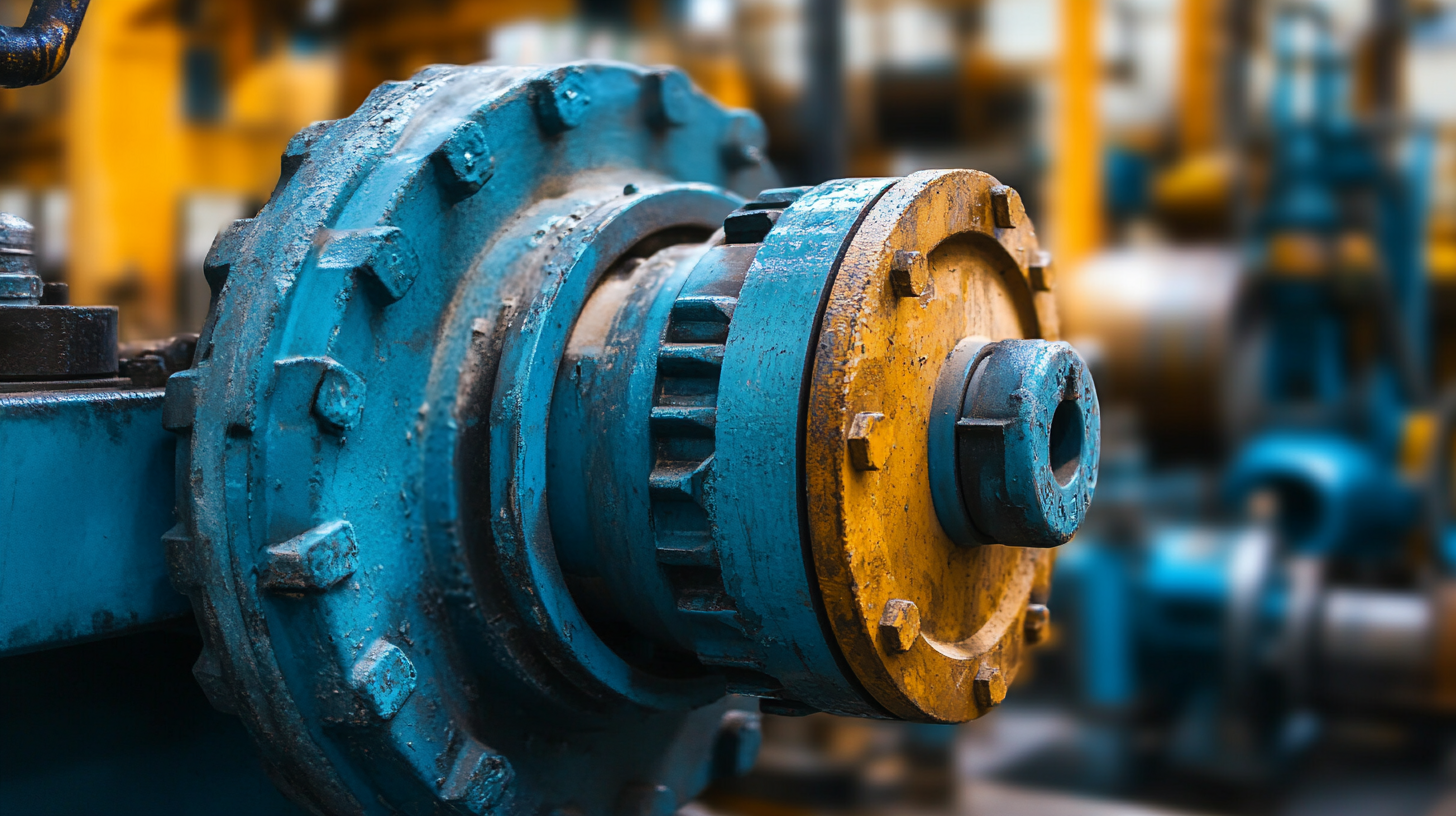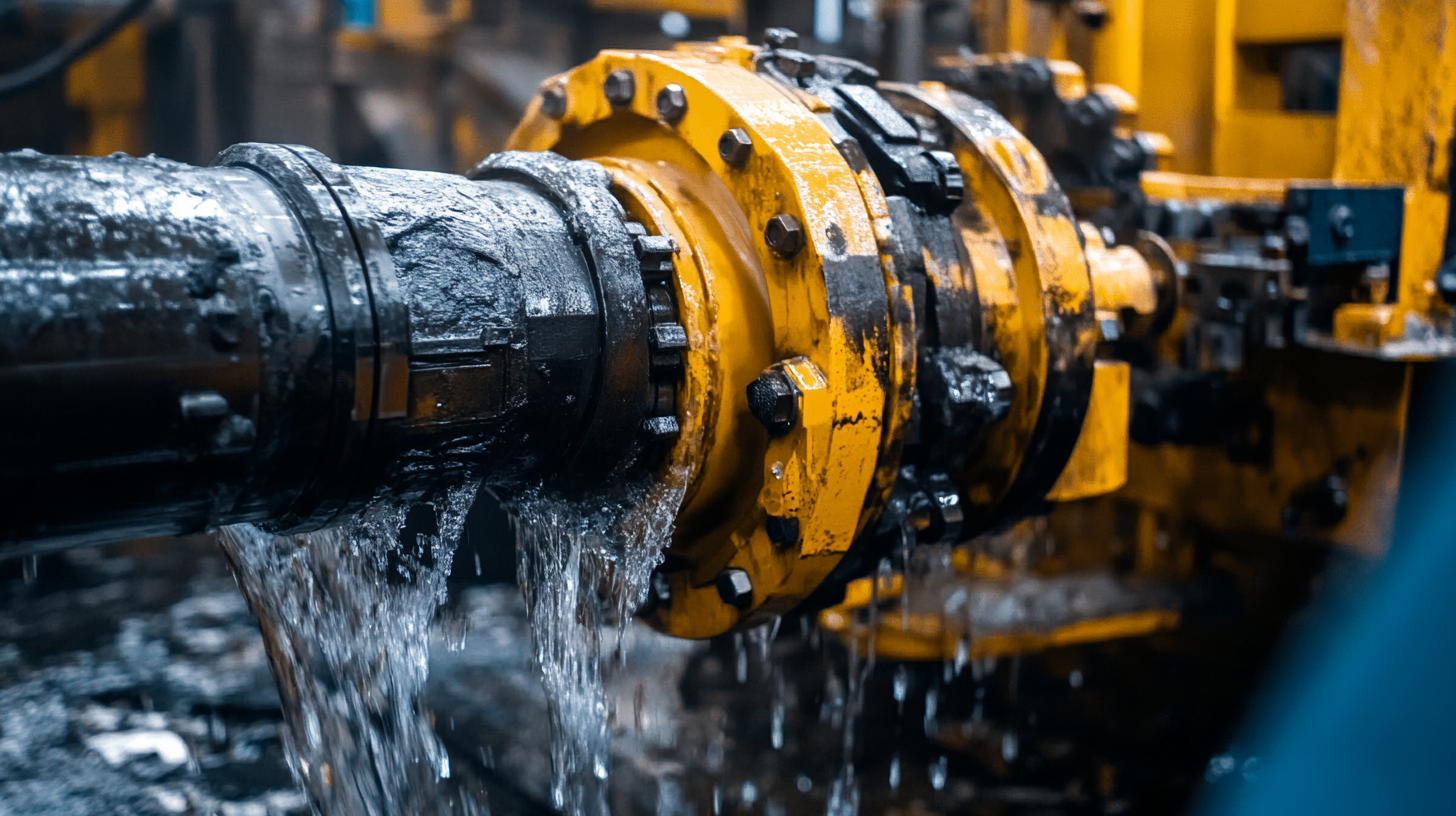7 Compelling Benefits of Choosing the Right Main Hydraulic Pump for Your Operations
In today’s competitive landscape, the efficiency and effectiveness of hydraulic systems play a pivotal role in achieving operational excellence across various industries. One of the most critical components in these systems is the Main Hydraulic Pump. Choosing the right Main Hydraulic Pump can significantly influence not only the performance of your equipment but also the overall productivity and cost-effectiveness of your operations. Understanding the unique requirements of your applications and the specific advantages offered by different pump types can lead to informed decisions that enhance the reliability and longevity of your hydraulic systems.
In this blog, we will explore seven compelling benefits of selecting the right Main Hydraulic Pump for your operations. From improved energy efficiency to enhanced system responsiveness, the right pump can make all the difference. By delving into the various features and capabilities available, we aim to equip you with the insights needed to optimize your hydraulic systems, ultimately driving better business outcomes and maintaining a competitive edge in your industry.

Understanding the Role of Hydraulic Pumps in Operational Efficiency
Hydraulic pumps play a crucial role in the efficiency of various industrial operations, serving as the heart of hydraulic systems. These pumps convert mechanical energy into hydraulic energy, enabling machines to perform a wide range of functions, from lifting and moving heavy loads to powering complex machinery. The importance of selecting the right main hydraulic pump cannot be overstated, as it directly impacts the performance, reliability, and overall productivity of your operations.
Choosing the appropriate hydraulic pump ensures optimal fluid movement within the system, reducing energy consumption and promoting smooth operation. A well-matched pump can maintain consistent pressure and flow rates, which are essential for tasks that require precision, such as in manufacturing or construction. Additionally, the right pump selection can minimize wear and tear on components, extending the lifespan of the machinery and reducing maintenance costs. By understanding the specific needs of your operation and the characteristics of various hydraulic pumps, you can enhance functionality and drive operational efficiency to new heights.

Maximizing Productivity: The Impact of Selecting the Right Hydraulic Pump
When it comes to maximizing productivity in hydraulic operations, the choice of hydraulic pump is crucial. Selecting the right pump can significantly enhance the efficiency of machinery, directly impacting overall operational performance. Recent studies indicate that utilizing high-efficiency hydraulic fluids not only minimizes fuel consumption but also boosts machine productivity. For instance, the correlation between hydraulic fluid efficiency and operational output can be as high as a 15% increase in productivity when the right fluid is employed alongside the appropriate pump.
Moreover, innovative technologies like agrivoltaics are setting new standards for resource management in hydraulic applications. This approach integrates solar energy, water, and land, highlighting the importance of optimized hydraulic systems that leverage renewable energy for enhanced productivity. In tropical humid climates, the synergy of these elements can amplify operational capabilities, offering a comprehensive solution to water management in agriculture.
Additionally, specifying the right hydraulic breaker is another essential aspect. Ensuring that the breaker matches the carrier's operating weight and hydraulic flow characteristics is vital for achieving peak performance. The right combination not only improves the efficiency of the hydraulic system but also prolongs equipment life and reduces maintenance costs. By focusing on these critical factors, operators can secure a competitive edge in their operations while ensuring sustainability and efficiency.

Cost Savings Over Time: How Efficient Pumps Reduce Maintenance Expenses
Investing in the right main hydraulic pump can lead to significant cost savings over time, particularly in terms of reduced maintenance expenses. According to a report by the Hydraulic Institute, operating a poorly selected or inefficient pump can increase energy consumption by up to 30%, which not only escalates operational costs but also causes more frequent breakdowns. Efficient pumps, on the other hand, are designed with advanced technology that minimizes wear and tear, thereby extending their lifespan and reducing the need for costly repairs.
Furthermore, the U.S. Department of Energy estimates that poorly maintained or inefficient hydraulic systems can lead to energy waste costing industries billions annually. By selecting the right hydraulic pump, businesses can optimize their performance and reduce these unnecessary expenses. Regular maintenance, along with the use of quality hydraulic pumps, keeps operational downtime to a minimum. This proactive approach not only enhances equipment reliability but also fosters a more efficient workforce, as operators can focus on productivity rather than troubleshooting.
In addition to minimizing repair costs, the right hydraulic pump can also ensure consistent system performance. The American Society of Mechanical Engineers (ASME) indicates that maintaining system integrity through proper pump selection can result in a decrease in maintenance frequency by as much as 50%. This translates into lower labor costs and less operational interruption, proving that an informed choice in hydraulic pump selection is not just a matter of efficiency, but also a strategic financial decision that pays dividends over time.

Enhancing Equipment Longevity with the Correct Hydraulic Pump Choice
Choosing the right hydraulic pump is crucial for enhancing the longevity of your equipment. Hydraulic pumps are the heart of hydraulic systems, driving machinery in various industries from construction to manufacturing. Misalignment between pump specifications and operational requirements can lead to accelerated wear and tear, ultimately increasing replacement costs. According to industry reports, selecting a well-suited hydraulic pump can extend equipment lifespan by up to 30%, significantly reducing maintenance downtime and improving efficiency.
Additionally, advancements in hydraulic fluid technology play a vital role in equipment longevity. For instance, synthetic hydraulic fluids, which have been developed using advanced energy-efficient technologies, not only meet stringent industrial requirements but also provide excellent lubrication, reducing friction and operational heat. The implementation of such fluids helps maintain optimal performance and further extends the life of hydraulic system components. A recent study highlights that systems using these fluids can experience up to a 25% decrease in operational energy consumption.
Investing in the right hydraulic pump and accompanying fluids is not just about immediate performance but also about long-term operational sustainability. As industries become more competitive, the cost saved over time from lower maintenance and increased equipment lifespan is a compelling reason to focus on hydraulic pump selection. Whether you're operating in mobile or stationary environments, making informed choices can lead to substantial operational improvements.
Improving Safety Standards Through Better Hydraulic Pump Selection
Selecting the right main hydraulic pump is crucial not only for operational efficiency but also for enhancing safety standards within industrial environments. A study by the National Institute for Occupational Safety and Health (NIOSH) indicates that improper equipment selection contributes to 20% of hydraulic-related workplace accidents. By choosing a hydraulic pump that meets specific operational requirements, organizations can significantly reduce the likelihood of malfunctions and accidents.
Better hydraulic pump selection plays a pivotal role in minimizing risks associated with hydraulic failures. For instance, using pumps that are well-suited to the task can lead to a decrease in the frequency of pressure spikes and fluid leaks, which are common hazards in hydraulic systems. According to a report from the Occupational Safety and Health Administration (OSHA), equipment failures due to inadequate performance specifications can lead to serious injuries and costly downtime. By investing in the right pump, companies can ensure not only compliance with safety regulations but also create a safer working environment for their employees.
Moreover, when hydraulic systems operate at optimal levels, they promote the longevity of all components involved. Research shows that equipment operating within their designed parameters not only reduces wear and tear, but also lessens the chances of unexpected breakdowns. This is critical in hazardous environments where incidents can lead to severe injuries. By prioritizing the selection of high-quality hydraulic pumps, organizations can foster a culture of safety, ultimately benefiting their workforce and their bottom line.





